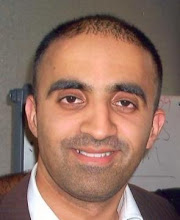LONDON (Reuters) - Civil rights and community groups criticised a proposal by Prime Minister Tony Blair on Sunday to give police broad powers to stop and question people as part of a new anti-terrorism law.
Critics said the proposed measure risked alienating the Muslim community whose support the government needed to combat militants and an opposition politician said Blair was pushing for the powers of a police state.
An interior ministry spokeswoman said the government was looking at including the "stop and question" power in new anti-terrorism legislation.
It would enable police to question people about who they are, where they have been and where they were going, according to the Sunday Times newspaper.
Plans for the measure emerged as Blair, who is due to resign in a month, attacked as a "dangerous misjudgement" Britain's determination to defend civil liberties rather than take tougher action to counter extremists.
"We have chosen as a society to put the civil liberties of the suspect, even if a foreign national, first. I happen to believe this is misguided and wrong," he wrote in the Sunday Times.
Police Minister Tony McNulty said the government would consult widely on its proposals before introducing new legislation in October or November -- by which time Blair will have handed over power to finance minister Gordon Brown.
Mohammed Shafiq, spokesman for the Ramadhan Foundation, a Muslim youth organisation set up to counter extremists, voiced concern it would be mainly minority communities that would be stopped and questioned under the proposed new powers.
"We feel that the government's proposals are going to alienate the Muslim community further," he told Reuters.
COUNTER-PRODUCTIVE
Doug Jewell, of civil rights group Liberty, told the BBC the measure was unnecessary and would be counter-productive.
One of Blair's own ministers, Northern Ireland Secretary Peter Hain, urged caution on new anti-terrorism powers.
"We've got to be very careful that we don't create circumstances that are the domestic equivalent of Guantanamo Bay," he told the BBC, referring to the U.S. prison camp for terrorism suspects on Cuba.
Nick Clegg, of the Liberal Democrats, accused Blair and interior minister John Reid of "pushing for the powers of a police state".
Blair's government passed tough anti-terrorism measures after the September 2001 attacks on U.S. cities and again after four British Muslim suicide bombers killed 52 people on London's transport network in July 2005.
Some measures Blair wanted -- such as a police power to hold terrorism suspects for up to 90 days without charge -- have been blocked by parliament or the courts.
Last week, the government was embarrassed when three men suspected of planning attacks on British or U.S. troops abroad absconded.



No comments:
Post a Comment